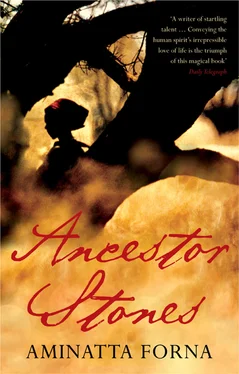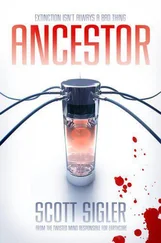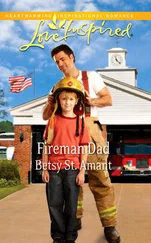They never stopped to ask about their own envy and their own jealousy. And what about a wrinkled old man without a wife who coveted a woman who belonged to his patron? And who used to be powerful but wasn’t any more. What about that? I was too young to ask the questions myself or I would have shouted out loud at them all.
I was eating a pear. I remember the taste of it. The pear was overripe, oozing juice and yet sucking the saliva out of my mouth at the same time. It tasted faintly of medicine. I was sitting on the wall outside our house. Pa Yamba had been in my mother’s room for a long time. I knew my mother was dying because I had seen Saffie, the youngest of my father’s wives, come back from the forest carrying a basket full of the red fruits that grow on the Christmas bush. The fruit was inedible, though birds loved it. For humans they had only one use. When you dropped the fruits in water and left them there for a while they turned the water black and we used them for dyeing things. For dyeing our garments after a death.
I was there when Pa Yamba came out of my mother’s room. I saw the line of his lips, pressed together, not quite straight, a small upward curve of satisfaction. And the glow that shone out of those stagnant eyes. And the renewed sureness of his step, the impact of his heel on the dirt. The confidence of power regained. I knew just by looking at him that day that he had used my mother for his own ends.
There are some things I learned early on. When I was a child, even before I realised I had to make my own luck, one thing I worked out for myself was never to let people discover the things you knew. Keep them to yourself, because then you had the power and they did not. People will always talk loosely; they forget who is listening. In the same way I learned you must never ask a question. Because then people will guess there is something you wish to know. Keep quiet. And listen.
They said she confessed before she died.
And there was more.
So much more.
Ya Isatta’s unborn children. My mother had eaten them. And it was she who had been the cause of the flu that left all our chickens lying lifeless in the dust one morning. Even lime and pepper would not revive them. The small whirlwind that spoiled the rows of trees grown from the new kind of coffee bean — that was caused by her dabbling. Pa Yamba had extracted all of these things from her before she died.
Ya Isatta said they should bring back the red water. That was the way, a long time ago, they used to discover who was up to no good. By making them drink it and the ones who proved to be witches died and that was that. And she demanded to know who would compensate her for her lost children. She said it before she saw me standing there. Afterwards she gave a kind of grunt, a noise halfway between a sniff and a snort. And then she took a great big breath, far more air than she needed. And she pushed it out through her nostrils noisily, her lips pursed together and her mouth turned down.
That moment I wished it were all true. I wished my mother had killed Ya Isatta’s children. I wished Ya Isatta would carry on inhaling until she sucked her own nose into her face, followed by her lips and her teeth and everything. I imagined her face disappearing like muddy water swirling down a hole until there was just a black space where her head should have been.
Those foolish women with their okra mouths, they did not dare talk that way in front of my father.
She was buried the same day. Finda told me my father took over the arrangements himself, making sure Finda bathed and anointed the body with the proper care, hiring readers to recite verses at the burial. Afterwards at the graveside, she said, he took some crumbs of the newly dug soil and placed them on his tongue. And he mourned her as though she had been a man, for forty whole days instead of seven.
Still, a man marries expecting to lose a wife or two. Wives pass on all the time bringing new lives into the world. Nobody dresses up all in black, just the hem of a lappa trailed in black dye. Relatives arrive to stay in her house, lay claim to her gowns, her cooking pots, her jewellery, even her little guitar which none could play but someone could sell.
And when the week is over everything is gone. Only her children are there still to be disposed of.
Ibrahim and Idrissa, they were the lucky ones. Not so long after my mother died men appeared in the village, one a white man. They set up a table in the middle of the village next to the barrie . The potho sat behind it. The other one — a Koranko, so told the short scars that marked his cheekbones — stood next to him. The potho said he was the Queen’s representative, recruiting soldiers to fight in a war to save the Empire. The Empire to which every one of us belonged. The pair were travelling throughout the country enlisting fighters. They had orders from the Queen that each village must nominate at least six men to the cause.
A distance from the houses more men were cutting down bamboo poles and binding them with ropes, laying palm leaves on top. In the evening we watched the same men stripped to the waist, torsos glowing in the red evening light, marching up and down in rows and swinging their arms under the command of the Koranko whose name was Saj Majoh.
Saj Majoh acted as translator for the white man. Under his command the recruits ran, jumped, lifted up logs, until he was satisfied they had the strength to become soldiers. In the evening he told the men who gathered around that they would be given as much food as they could eat and taught to march, to fire a gun and to read and write. He told them that in addition to all of this they would be paid three silver shillings every single week.
My brothers promised they would write as soon as they learned how. Nobody thought to ask how I would read their letters. They marched away, pounding the ground with such force they caused the earth to shake, singing a newly learned song at the tops of their voices. All the shouting and stamping disturbed the bats hanging in the branches of the cotton tree who loosened their claws, unfolded their wings and swirled up into the sky above the brigade of men, trailing them like an omen.
Ibrahim and Idrissa were being sent away to fight in a war, but still it made me envious to watch them go, and sad to think I was left all alone. The question nobody cared to answer was who would take care of me. My mother’s family had left without taking me with them for they were poor and thought I would be better cared for in my father’s house. Finda was just a servant, I was not her responsibility. Besides, I had seen how she acted around the sugar cane seller, standing with her hands on her hips, her back arched so her breasts and bottom jutted, denouncing the quality of his produce in a too, too loud voice. And I had seen the way he stood, resting on one leg with his chin pointed at her as though he relished the insults.
You know that fountain at the crossroads in the middle of town? Three pools of water and a fountain. Well, the pools are empty and the fountain doesn’t work, and now the concrete is all cracked. Built for a big conference twenty years ago. All those heads of state flew in. I remember. I remember standing outside the brand new hotel, watching them arrive one by one in black limousines. The presidents and generals sitting in the back, waiting while their drivers climbed out and walked round to open the door for them. Then the driver had to close the door and walk all the way back around, start up the car and drive out. They could have just reached for the door handle. I didn’t think of that then. We were so impressed. The cars were all backed up. It took some of those big men twenty minutes just to get inside the hotel. And that fountain never worked properly from the start. It was painted in the colours of the national flag. The pools of water were supposed to trickle into each other.
Читать дальше












